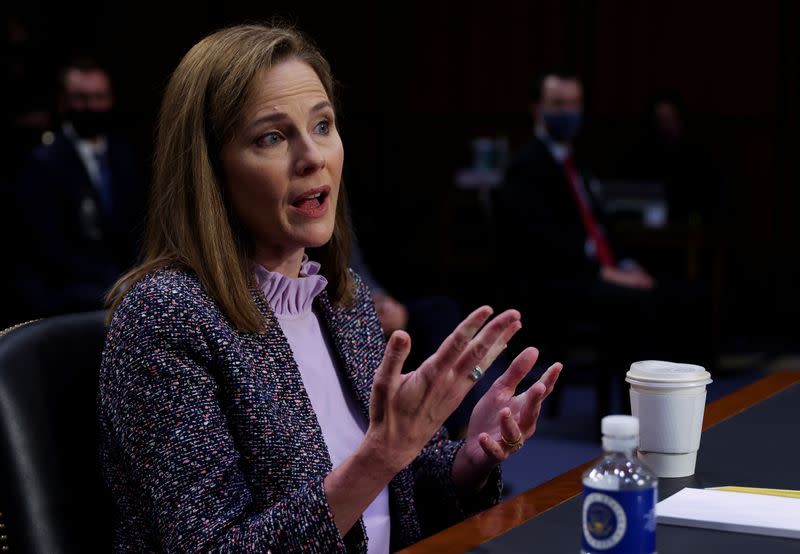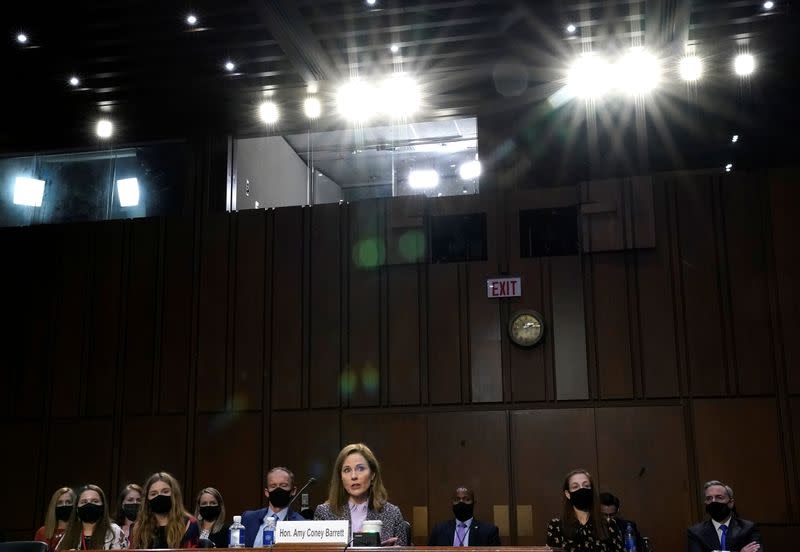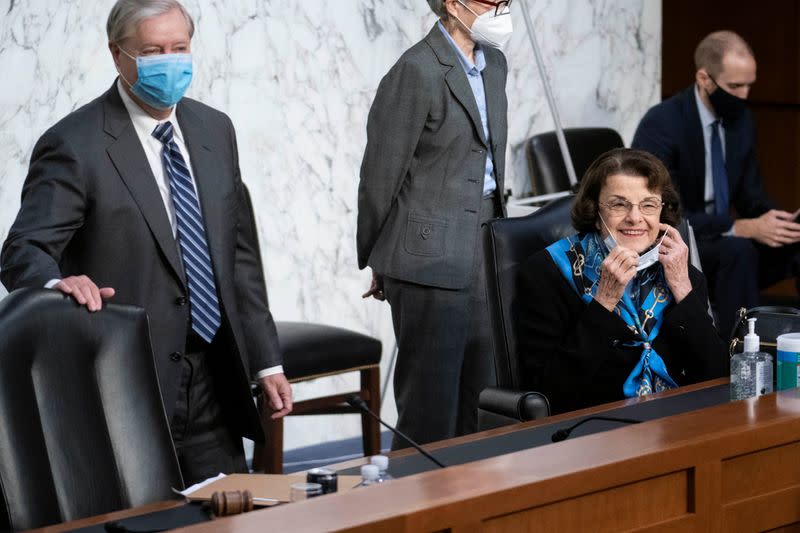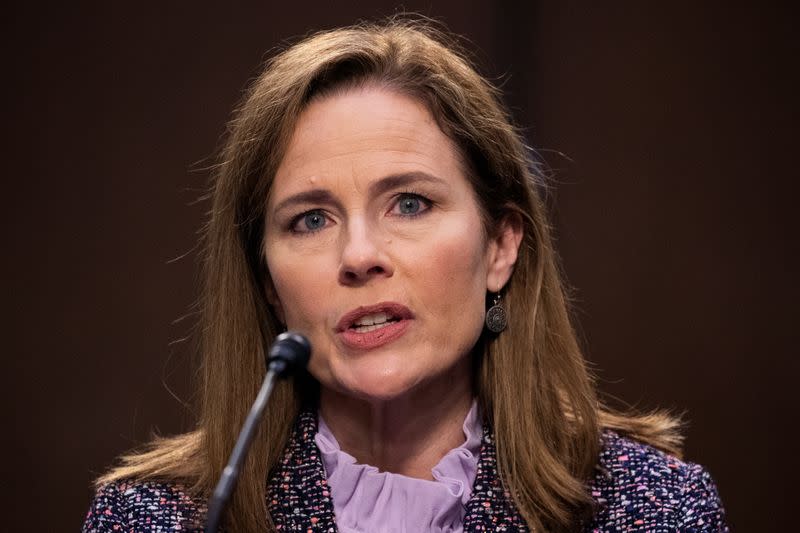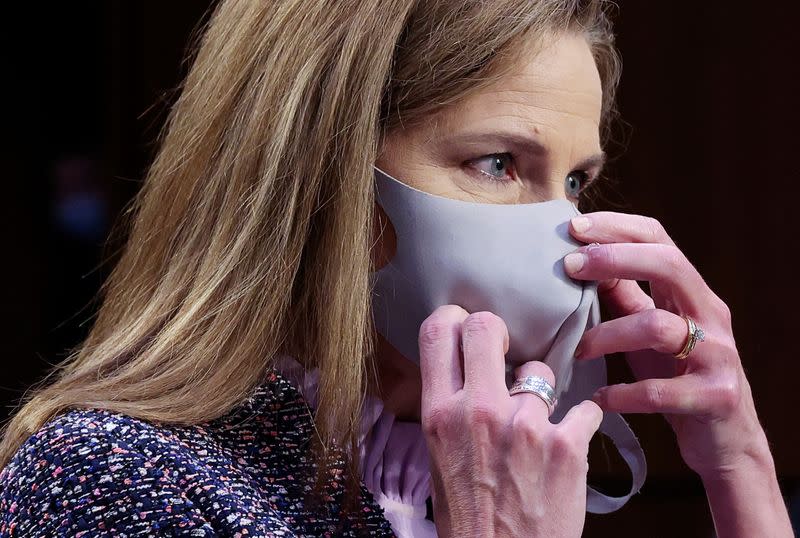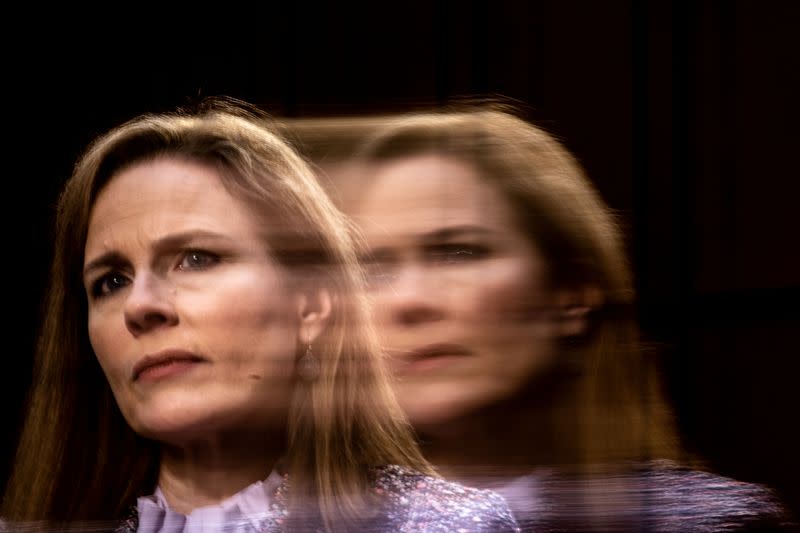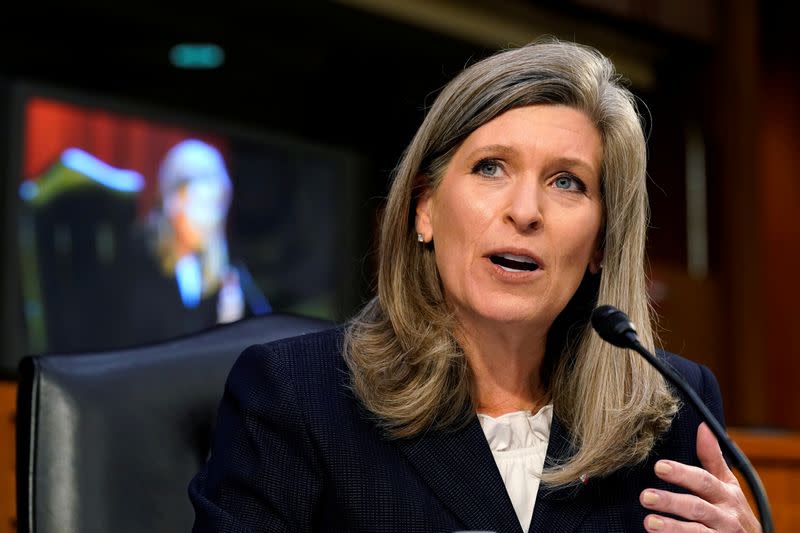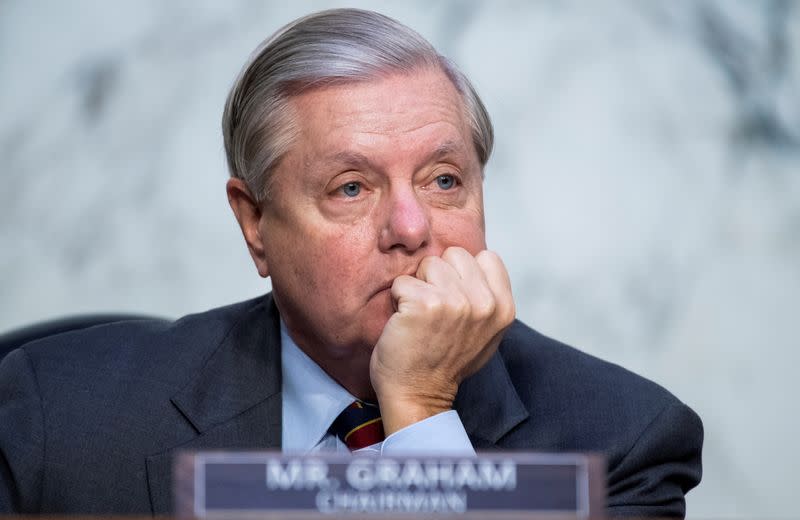Trump's court pick Barrett calls presidential self-pardon an 'open question'
By Lawrence Hurley, Patricia Zengerle and Andrew Chung
WASHINGTON (Reuters) - President Donald Trump's Supreme Court nominee, Amy Coney Barrett, said on Wednesday it was an "open question" whether Trump could pardon himself and added that the top U.S. judicial body "can't control" whether a president obeys its decisions.
She also sought to allay Democratic fears that she would be an automatic vote to strike down the Obamacare healthcare law in a case due to be argued Nov. 10, promising an "open mind."
Barrett wrapped up about eight hours of questioning on the third day of her four-day Senate Judiciary Committee confirmation hearing. The committee will hear on Thursday from witnesses both for and against her confirmation, but Barrett herself will not be present.
Trump has said he has the "absolute power" to pardon himself, part of his executive clemency authority. Asked by Democratic Senator Patrick Leahy whether a president could pardon himself for a crime, Barrett said the "question has never been litigated."
"That question may or may not arise but it's one that calls for legal analysis of what the scope of the pardon power is. So because it would be opining on an open question when I haven't gone through the judicial process to decide it, it's not one on which I can offer a view," Barrett added.
Trump also has issued executive clemency to political allies and friends.
Barrett, a conservative federal appellate judge, is Trump's third selection for a lifetime Supreme Court post. Trump has asked the Senate, controlled by his fellow Republicans, to confirm Barrett before the Nov. 3 U.S. election.
While saying that "no one is above the law," Barrett twice declined to answer directly when Leahy asked whether a president who refuses to comply with a court order is a threat to the U.S. constitutional system of checks and balances within the three branches of government.
"The Supreme Court can't control whether or not the president obeys," Barrett said.
Supreme Court rulings, Barrett said, have the "force of law," but the court lacks enforcement power and relies on the other branches of government.
"A court can pronounce the law and issue a judgment but it lacks control over how the political branches respond to it," Barrett added.
Barrett declined to discuss whether Trump was violating the U.S. Constitution's "emoluments" clause with his business dealings. The provision bar presidents from taking gifts or payments from foreign and state governments without congressional approval.
"I don't know if I would characterize it as an anti-corruption clause," Barrett said, disagreeing with Leahy, adding that it was designed to "prevent foreign countries from having influence."
OBAMACARE CASE
Barrett could be on the high court for arguments in a challenge by Trump and Republican-led states to the 2010 law formally called the Affordable Care Act that has helped millions of Americans obtain medical coverage and includes protections for people with pre-existing conditions.
Responding to Democratic suggestions that she would vote to strike down Obamacare in its entirety if one part is deemed unlawful, Barrett said if a statute can be saved, it is a judge's duty to do so. Barrett added that she would approach any ACA case "with an open mind."
Barrett has criticized previous Supreme Court rulings upholding Obamacare.
Senator Kamala Harris, who is Democratic presidential candidate Joe Biden's running mate, said that the proceedings "lack legitimacy in the eyes of the people of our country" because they want the winner of the election to decide who fills the court's vacancy.
"Americans right now are suffering from a deadly pandemic and we are also suffering from a historic economic crisis," Harris said. "The Senate should be working day and night to provide economic relief to families and not rushing a Supreme Court confirmation."
Barrett, 48, would be the fifth woman ever to serve on the court. As a devout Roman Catholic, Barrett personally opposes abortion.
"This is history being made folks," said Republican Senator Lindsey Graham, chairman of the panel. "This is the first time in American history that we've nominated a woman who is unashamedly pro-life and embraces her faith without apology, and she's going to the court."
Barrett would not say if the landmark 1965 Griswold v. Connecticut ruling that protects the right of married couples to use contraceptives without government restrictions was properly decided, but said it was "very unlikely" to be imperiled.
Some conservatives including Barrett's mentor, the late Justice Antonin Scalia, have criticized the ruling, which recognized a constitutional right to privacy and paved the way for the 1973 Roe v. Wade ruling that legalized abortion nationwide as well as decisions recognizing LGBT rights.
Democratic Senator Cory Booker raised concerns to Barrett about racial issues, noting that Black Americans are disproportionately affected in criminal sentencing and restrictions on voting access.
"In my private life, I abhor racial discrimination and obviously for both personal reasons and professional reasons I want to ensure that there's equal justice for all," added Barrett, who has two Black adopted children from Haiti among her seven children.
Barrett's confirmation would give the court a 6-3 conservative majority. Republicans have a 53-47 Senate majority, making Barrett's confirmation a virtual certainty.
Republicans are preparing for a committee vote next week and a final Senate confirmation vote before the end of October. Trump nominated Barrett on Sept. 26 to replace the late liberal Justice Ruth Bader Ginsburg.
(Reporting by Lawrence Hurley and Patricia Zengerle in Washington and Andrew Chung in New York; Editing by Will Dunham and Peter Cooney)

